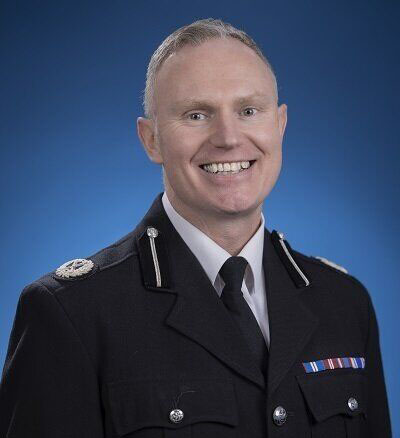West Midlands Police Assistant Chief Constable Matt Welsted believes he owes his successful career to his dyslexic thinking. He’s telling his story to inspire others that being neurodivergent (ND) doesn’t need to hold you back.
I always hated reading and found the process frustrating, but I didn’t get myself tested for dyslexia until I was nearly 43 years old.
I only got tested then when I finally hit an obstacle that my ways of working couldn’t overcome, but I’m so glad I did.
As a child I didn’t know I was dyslexic, but looking back it was obvious. I saw things differently from my peers, and I found reading and writing hateful and exhausting activities – I just didn’t know why.

My education was a mixed bag. I did well in maths and science, all things physical and was confident at speaking and solving problems, but underachieved at English or anything based on reading or writing.
It affected my confidence because others seemed to find this easy, even enjoyable, and I didn’t – so of course, at times I doubted my intelligence and abilities.
I worried about my written work as this was the obvious ‘issue’ for people who criticised it over the years. I learned to hide this away from others or did a lot of redrafting to make sure it was right.
I’ve developed ways of working that help me deal with being dyslexic. These include:
- I ask for reasonable adjustments for standardised tests – usually extra time and a private room
- I listen to books and have an app that reads documents
- I plan where I work so I don’t set myself up to fail – the downside is that I usually spend my working days speaking to people and doing my reading or writing away from others
- I play to my strengths – I’ve built a career out of doing what I’m good at
- I manage my focus to make sure I get done what’s important
People with dyslexia or other ND conditions have strengths that are often what policing needs. My innovation, positivity, passionate communication and ability to ‘see’ solutions that others can’t, have helped me serve the public for over 27 years and become a chief officer in England’s second-biggest police force.
It’s true that for dyslexic people to thrive in a police environment, the individual needs to get over some of the obvious challenges – such as statement taking, report writing, handwriting and spelling. Too many colleagues have been criticised or labelled ‘stupid’ because they’ve struggled with these activities.
In 2023, there’s no reason this should be the case. Most of the time, a little support, understanding and some simple adjustments that are free or cheaply available is all that’s needed.
I know how hard it is to face up to your challenges and ask for support, but it’s worth it. It gave me answers, insights and the ability to understand myself.
I believe that tolerating or even accepting difference is not enough: we should seek out difference for the value it adds. ∎
This blog was originally published on the West Midlands Police LinkedIn page as part of Dyslexia Awareness Week – it is reproduced here with kind permission of the author
